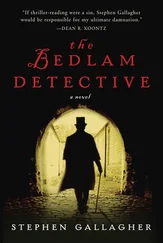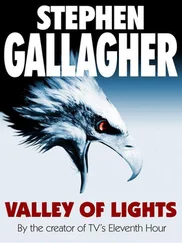Have those always been there? I thought. Or did Fat Mukhtar bring them out for today? That felt likely, though I couldn’t be sure. Perhaps I hadn’t noticed them before.
“The mukhtar says he works with Americans now,” Snoop continued. “Americans who will leave, as the Ottomans and British left.”
Captain Vrettos loosed a soft whistle. The Big Man made a feeble attempt to explain why we were different. He mentioned clearing, holding, and building. My eyes moved from dead face to dead face to dead face. I tended to think that those who came before were worthier, more distinguished. At first glance, the same held true for these Iraqi tribal leaders. But Fat Mukhtar’s great-grandfather, he of the biblical eyes, also had pouty lips. And his grandfather’s mouth hung open, like a fool’s. And his father — he must’ve posed with the gun for show, as tightly as he gripped it. I remembered Lawrence had been stationed in the outpost of Cairo only because his superiors had deemed him a goof and a nuisance. I belong here as much as anyone, I thought. Because at least I have the goddamn dignity to question being here to begin with.
“Lieutenant Porter.” It was the Big Man. “Update us on your Muslim soldier.”
The fatwas were old news, so none of the Iraqis acted surprised. The Big Man seemed to want them to be. Every time I bumped into Ibrahim at Camp Independence he looked more despondent than the last, but he never whined or complained. He just said “One day closer” over and over again, until I left him alone.
“We have nothing to do with that,” Fat Mukhtar said, slumping against the wall and sliding down it, resuming his seat. “That’s the Cleric.”
“Not possible,” the Big Man said, his fingers stubby rocks aimed at the mukhtar ’s head. “Lieutenant Porter’s platoon got him last month. What was his name again?”
“Haitham,” I said, staring at a triangle of light from the window’s reflection that’d gathered between my legs. His black-and-white mug shot was wedged into my Lawrence book along with every other document I didn’t know what to do with. “His name was Haitham.”
“And it was you who led us to him.” Captain Vrettos spoke now, his voice charged with a voltage I didn’t recognize. Recent events had amplified the pressure on him from higher, though the Big Man had supposedly refused to fire him when pushed to by the generals. I looked at Captain Vrettos and clucked my tongue to try to calm him, but his red-faced exhaustion had eyes only for the mukhtar . “You fed the Rangers that information. So, with Haitham dead, just who the hell is dictating the fatwas?” The volts surged. “Someone here knows the fucking answer to that.”
The room turned helter-skelter. Tribal leaders shouted at one another and at us, fingers wagging, fists shaking; the Big Man yelled at Captain Vrettos, who yelled right back, saying he was sick of ignoring the obvious. I pulled my knees tight to my chest and watched the triangle of light dance between my legs. I wondered what Rana was doing. Probably hanging laundry to dry, or demanding Karim lie down for his afternoon nap. She’d said her husband would be home all week. She’d have called otherwise.
I looked up at the portraits of the dead men and sighed. We said we wanted peace. What we really wanted was calm, something else altogether. They said they wanted peace, too. What they really wanted was power, which maybe wasn’t something else altogether. After we’d destroyed their mosque, it was tough to argue otherwise.
One of the tribal leaders, a younger guy I’d met at Abu Mohammed’s wake, started shouting, “Nina leven, fasil! Nina leven, fasil! Boosh! Boosh! Boosh!” I winced. Captain Vrettos flipped him off with both hands, which made the Iraqi yell louder.
Through all the noise, I smelled decay again. I watched a man with a large lip sore and a salt-and-pepper beard emerge from the corner to shush the other Iraqis. The stench seemed to be coming from his sandaled feet, his toenails little gnarled knives poking out at the world. Wearing a gray dishdasha and a red-and-white checkered turban, thick wrinkles splayed across his forehead, sagging in the middle. Yousef’s eyes studied the spaces between the men in the room, one a deep hazel, the other the cloudy brown of cataracts. I realized where I’d seen him before, even before the patrol through the sandstorm. He’d been the man demanding fasil at the car accident in the spring. I wanted to ask why a falafel man had been invited to this meeting, but stayed quiet.
“This isn’t the time for blame.” Snoop translated for Yousef with taut exactitude, as if he were afraid to neglect even a syllable. “We’ve all lost friends, American and Iraqi. While it seems wise to keep the American Muslim away, we must remember the death sentence was also placed on brave Iraqi soldiers.” The IA major nodded vigorously. “And we must remember the neighborhoods of Ashuriyah are being covered with lists of targets stuck to telephone poles. Sunni and Shi’a. Not all are just threats.”
While Yousef continued, I watched the faces of the other men in the room. Wasta isn’t a thing to pursue, I thought, or even possess. It’s not just power. Yousef knows this, and that’s why he has it. Despite the Sahwa contract, despite the luxury sedans, despite all the bombast and circumstance, the mukhtar didn’t. One glance his way showed he knew it, too.
Yousef was still speaking when Fat Mukhtar interrupted. At first the older man tried to speak over him, but when the mukhtar continued, he stopped and turned his head toward the ceiling, exasperated. Fat Mukhtar then stood up again to shout down his opponent. An argument ensued, one voice restrained and firm, the other wild as a roller coaster. The rest of us sat in awkward silence, watching while pretending not to.
“They argue about who’s in charge,” Snoop said slowly. “Fat Mukhtar say this is his house. The falafel man tells him to calm down, this is not the time.”
Fat Mukhtar spat on the ground toward Yousef’s feet and wiped his palms together like he was cleaning his hands. He said something to all the room with his arms spread wide and turned to Snoop and me, jerking his head to the door. Then he stormed out, slamming the door behind him.
Snoop’s voice returned to a robotic pitch. “The mukhtar say he’s the only one who can stop the terror men,” he said. “Then he tell LT Jack and me to go outside with him, since everyone else here just wastes time.”
“Go,” the Big Man said. “Settle him down, we need him here.” I stood, and Snoop began to do the same. “We need the terp.” Anticipating a protest, the Big Man waved me outside. “Be creative, Lieutenant. Put that liberal arts degree to use.”
I scooped up my helmet, slung my rifle, and walked out into a chalky sun.
• • •
The mukhtar stood in his driveway rubbing the hood of a black Mercedes. He watched me approach through the reflection of the tinted windshield.
“No Snoop,” I said. “Bosses. Mudir s.”
After sneering at the house, he burped and pointed at the fleet of Land Rovers and Mercedeses in his flagstone driveway. Then he pointed back to himself with his thumb, the digit disappearing into a pit of white cloth.
“ Bayti . Mine,” he said, the English word like a pepper shaker in his mouth.
He gestured to follow him down the driveway. We walked under a canopy of palm trees, most of them sagging from overwatering. Some of the rolls of carpet that covered his lawns had bunches in them, little green tufts that belonged on a miniature golf course. The estate overlooked the Villages from a ridge wedged between hills. Below us, irrigation ditches zigzagged through hamlets with gridded care, a network of blue forcing structure upon dusty bedlam. In the far north, the sluggish waters of the canal gleamed, partially cloaked by the fruit groves. To the south was nothing but desert and dried-out ravines, and to the west — to the west Rana lay in wait, an exile in her own land.
Читать дальше




![Ally Carter - [Gallagher Girls 02 ] - Cross My Heart & Hope To Spy](/books/262178/ally-carter-gallagher-girls-02-thumb.webp)
![Ally Carter - [Gallagher Girls 01] I'd Tell You I Love You But Then I'd Have to Kill You](/books/262179/ally-carter-gallagher-girls-01-i-d-tell-you-i-lo-thumb.webp)






